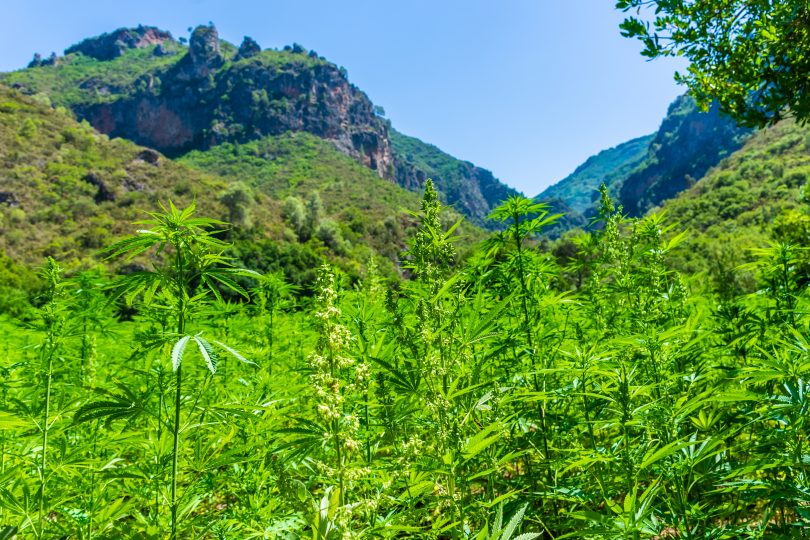We like to split our world up into categories to describe overall economic and social development. When we say 1st world, we mean America, Europe, Australia… when we say 3rd world, we’re often talking about places like Africa, certain areas at least. But what if that all changes with the building ‘green rush’? Could this be a paradigm shift for the whole continent?
Africa is counted out of many things. It’s not a world economic leader. It’s not at the top of 21st century healthcare. It’s not known for its educational systems. And much of the varied populations that make up the vast spaciousness of Africa, live in absolute poverty.
No one worries about being invaded by an African military force. Or worries about the overreaching arm of an African leader messing with their own country. And it’s been this way for so long, that it almost feels like Africa has simply been cut out of 1st world reckoning apart from worrying about some strange viruses that come out of the region, or the ability to plunder their natural resources with little regard for the locals.
In the last few years, cannabis regulation has changed the world over with tons of medicinal marijuana programs being started in different countries, and all kinds of personal use laws that allow individuals a little freedom in their drug use without having to worry about going to prison. Some, like Canada, some US States, and Uruguay have already gone all the way to legalize for recreational use, while Luxembourg is on its way. But it’s not all about usage ability, much regulation is simply around growing the plant, and where it can be sold.
Use the sign up form below to subscribe to the Medical Cannabis Business Newsletter
How cannabis is hitting Africa
One of the big trends in Africa now is to very quickly loosen cannabis laws in order to allow for cannabis cultivation and production for international sale. But not necessarily for residents. In fact, much of this changing regulation has simply been to legalize cultivation for commercial use, while not necessarily bothering to change legislation for residents of the countries themselves.
The question that used to be asked was, ‘is it legal to grow and use cannabis in this country?’ Now the question seems to be, ‘is it legal to grow and sell cannabis outside this country?’ Compare this to a nation like Switzerland which is requiring 10-years of trials just to assess the need for changing their legislation, and these recent updates in Africa, and general turn of opinion, seem lightning fast. Malawi is one of the latest to fall-in, legalizing medicinal and industrial cannabis.
Whereas legalizing for industrial purposes has been slow going for most countries in the decriminalizing/legalizing process, it seems to be a part of every African country’s plan. Maybe legal for the country, definitely legal to grow and sell. Recreational use is still illegal in Malawi, and no amount has been stated for licensing costs, which will help determine how much local residents will be able to buy into this new economy.
Similar to other countries, Malawi’s new laws state that while growing, selling, exporting, holding and distributing are legal with a license from the Cannabis Regulatory Authority, those found doing the same things without a license could face 25 years in prison, or a $70k fine.
The African Cannabis Market is Poised to Reach $7.1 Billion Within Four Years
Following directly behind Lesotho – which was the first country to take the plunge (we’ll get there later), Zimbabwe updated its cannabis policies in 2018 to legalize the production of cannabis for medical and research purposes. Though no license fee was originally set, the first deal to go into effect last year was with Precision Cannabis Therapeutics Zimbabwe for $46k, the kind of fee that is already cutting locals out of the burgeoning business.
South Africa too has lightened its cannabis regulation, but unlike the aforementioned countries it also instituted very lax personal use laws for its residents. Much like the other countries, however, it also legalized for medical cultivation, but doesn’t make it easy for locals to take part. As per Cape Town publication Landbouweekblad, in order to get licensed to grow in South Africa, a prospective grower must pay a large licensing fee, as well as get clearance from local police.
This comes with its own issues, have or institute an adequate irrigation system, maintain approved security measures for the site, have fencing, register their highly specific plot dimensions, already have business set up with international buyers, and so on, all of which ends up costing about $200-350k total. Ordinary farmers generally don’t have that kind of cash.
Why Africa?
There are several factors that make for Africa leading the green boom. First of all, Africa has a great growing climate for cultivating cannabis, and rich soil. Between all the relevant countries, there’s a massive amount of space to work with. Most African nations are not wealthy with most being pretty poor, and reliant on mining or farming. In this way, the population is already set up for the industry with farmers who need work, plenty of land, fertile soil, an abundance of natural sunlight, and great weather.
African Foothold for U.K. Entrepreneurs in Tandem with Aphria
The idea of just how much this industry could be worth is hard to pin down. Everyone has an opinion on how big the market will get, and who stands to earn the most. According to Prohibition Partners, the legal cannabis industry in Africa could top over $7 billion annually by 2023. Of course, that’s just Africa, and that’s just a legal market. To get an idea of how big the cannabis market technically is worldwide and without rules, New Frontier Data released Global Cannabis Report: 2019 Industry Outlook which estimated the total market all inclusive was worth approximately $344 billion annually.
That leaves a lot of room for legal industry to take over. The report also identified the top five regional cannabis markets as: Asia – $133 billion, North America – $86 billion, Europe – $69 billion, Africa – 37 billion, and Latin America – $10 billion.
But…
In theory it’s such a great idea, right? The poor countries of Africa finally getting their time in the sun. Propelling themselves out of the darkness of poverty, and joining the rest of the Western world. Only, this doesn’t seem to be what’s happening.
Take a look at Lesotho, the first African nation to start the green rush in 2017 with a quick and easy change of policy updating the country’s strict (but not enforced) laws to allow for the legal cultivation of medical cannabis. However, it was only legalized for exportation, with absolutely nothing done to change regulation for those in the country, or to introduce a medical cannabis plan for residents so they can access the very medicine that they grow on their land.
South Africa Introduces Some of the Most Lax Laws on Cannabis Yet
And in a country like Lesotho, they could really use more good medicines, and better access to them. Lesotho, like Zambia, which similarly followed suit a couple years later (legalizing medicinal cannabis, but overlooking a program in its own country), is selling its licences for cultivation to international buyers. Lesotho set its licensing price at $37k. Zambia has not yet declared what its licensing amount will be. Last year it was widely reported that the licensing fee for Zambia would be a massive $250k, but this was later shot down as fake news.
No correction was made, though, so the exact amount is unknown, and it’s quite possible that the $250k was put out there to test the waters. Even with this unknown, the price is unlikely to be low, and unlikely to be what a local farmer can afford. Thus backing up the idea that these changes in regulation act as an invitation to outside investors. In both scenarios the markets stand to do very well, but the most the locals are getting out of it are low paid jobs farming the land that should be theirs.
Other African countries have made similar changes to their laws or are in the process of doing so, like: Uganda where it’s illegal for citizens, but legal to grow and export, and Ghana, Kenya, Swaziland and Morocco, which have all considered legislation, and have a strong push toward it.
Conclusion – Cannabis in Africa
While there is massive growth potential for Africa with this new trend toward cultivating cannabis for the global legal medicinal and recreational markets, there is also massive potential for government corruption, and selling out to international investors rather than keeping the money local where it can accomplish more good for residents, and bolster the country as a whole. Unfortunately, it’s easier to make a quick buck by selling out to foreign investors, and political leaders have not always been known to think of their constituents first.
So just like China became king of the sweat shop industry when it came to making cheap clothing, electronics, and most other stuff, Africa is gearing up to be the hub for future low cost cannabis production, for better or for worse.
Thanks for stopping by CBDtesters.co, where we aim to keep you in the know about everything cannabis-related. Check back often and make sure to subscribe to the Medical Cannabis Business Newsletter to stay up-to-date.









